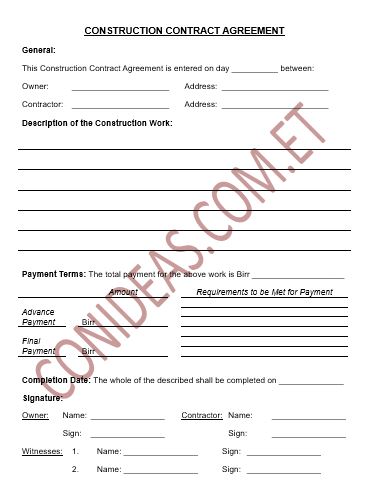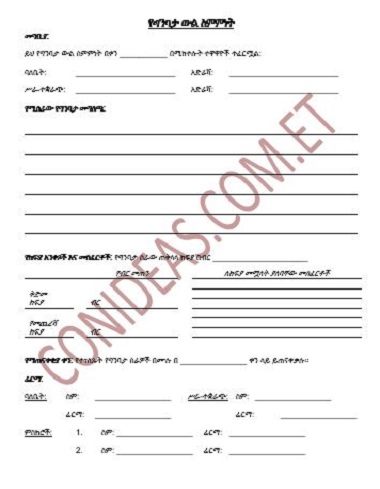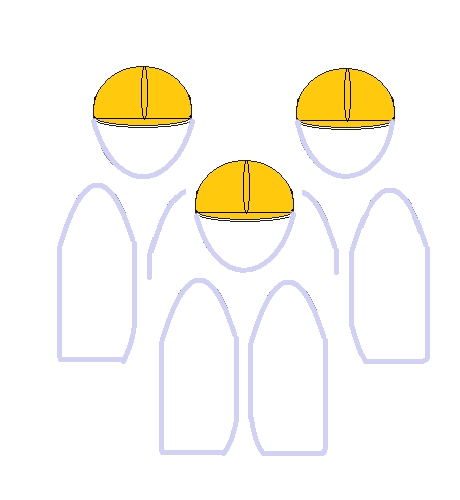Are you planning to renovate or maintain your house; or build a new fence; or cover your outdoor surface with terrazzo; or construct a ditch for rain storm; etc. Or, you are a contractor to do these works.
What if I’m going to tell you that there is an important and smart way to begin these projects. Preparing a simple construction contract agreement.

On our article “Understanding Construction Contract Agreements: A Beginner’s Guide”, we have discussed construction contract agreement briefly and why it is very important to your construction work. We also categorized projects based on their complexity as easy, simple, medium, and big. The above works shall be categorized as easy projects.
In this article, we shall show you how to draft a simple contract agreement. This agreement shall build trust and confidence in your project so that your project can be completed successfully.
Do I really need a construction agreement?
You may be asking, why do I need an agreement for that

I am only constructing 20 meter masonry ditch and I only deal with one mason

I am building a G+2 residential building and the contractor is my brother’s best friend

I am going to construct a building for very famous/reputable rich man in town

I am working with government office and the manager told me to start without agreement
Well, you can raise a wide variety of similar questions. The answers can be given with the following very simple questions. How do you feel, if
the house to be completed within 3 months took 3 years, and still it is not complete

your friend contractor took advance payment and disappears

Your rich relative is not willing to pay for completed building

The constructed masonry ditch is washed away by flood

The world is full of the above and similar cases. And, people faced with these situations have felt anger, frustration, and resent most of the time. So, do you need a contract agreement for your construction works? The simple and obvious answer is YES!
How shall I draft a construction agreement for my project then?
To draft an agreement for your easy project is very simple. Answer the following questions on a piece of paper.
- Who is owner and contractor of the project? Attach documentation for each party
For example: Valid ID, Renewed Business license, and so on
- What do you want to construct? Clearly write your vision of the work to be done.
For example: “I want hollow block fence around a house. It should be similar to the height of the neighbor. It shall be done with quality hollow block. The color of the fence shall be gray. And, all waste must finally be cleared.”
- How much is the cost of construction? Probably ask a friend, relative, or join our forum.
For example: “Since I supply material, compare labor cost of the contractor”
- When do you want it to be completed? Set a realistic time line.
For example: “I want it to be completed with 1 month or two weeks time”
- What are the payment terms? Most appropriate can be advance and final payment.
For example: “Pay 40% as an advance and 60% at completion of work”
Let’s simplify the above into actual agreement paper as shown in the image below.


The answers you prepared can be summarized in the above agreement. Please be careful in using fancy, complicated or legal words which can backfire on yourself. A contract agreement shown above should be written in a very clear and simple language so that everybody can understand.
In conclusion,
A simple construction contract agreement shown above for easy construction projects has the following vital advantages.
- The project work scope is very well understood between the owner and builder as long as genuine negotiations are made.
- The cost of the project is also stated in figures
- The completion time of the project is also known
- It is legally acceptable document in case of disagreement
It’s believed that disagreements between builder and owner could arise. The best way to settle these disagreements is through discussion and negotiation.
A simple contract shown above will save you a lot of trouble in case things did not go as planned. You can just use a white paper and a pen just to jot down the above agreement in hand writing.
Finally, simple projects, like house renovation/maintenance, residence villa/building, small internal road, and small bridge constructions; require professional contract agreement form and documents. You can read our article Small Projects, Big Clarity: How to Structure Construction Contracts.
WHAT DO YOU THINK OF THE ABOVE ARTICLE?
Share your ideas with our community via the comment box below.
OR




